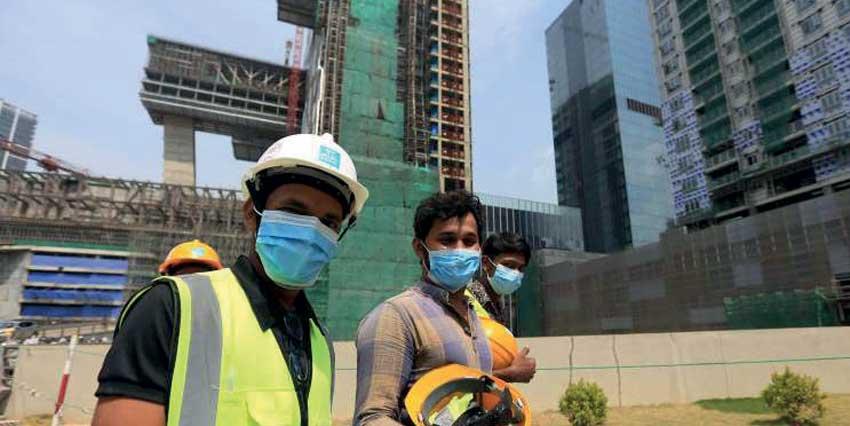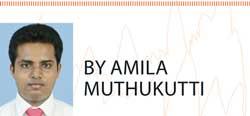02 Apr 2020 - {{hitsCtrl.values.hits}}

There is a necessity for the government to be actively involved in the economic activities for cushioning the impact of the coronavirus
 Economic implications of the coronavirus are long-term and more severe than health implications, because people fear of hunger more than dying from the virus.
Economic implications of the coronavirus are long-term and more severe than health implications, because people fear of hunger more than dying from the virus.
Global supply chain is disrupted unprecedentedly, weakening supply side of the economy. This situation leads to a crisis, mainly not because of weak demand, but because of weak supply or disrupted supply chain.
Accordingly, many economies in the world have already taken various measures to cut their rates and introduce stimulus packages. However, economists have given a negative outlook for the world economy, given this situation.
Ruchir Sharma, Chief Global Strategist at Morgan Stanley recently in an interview with India Today stated that if the coronavirus pandemic was not brought under control by May, we could be staring at a situation similar to the Great Depression of the 1930s.
State of affairs
It is important to discuss how Sri Lanka coule face economic problems during post coronavirus period, especially taking in to account factors like level of public debt, fiscal situation,
monetary measures already taken, GDP growth and many more. In fact, these are the factors that determine how resilient the economy is. These factors are not so positive for Sri Lanka.
Two months ago, Standard and Poor, a rating agency, had downgraded Sri Lanka’s credit rating to negative from stable. They further stated that negative outlook reflects their view that a larger-than-expected fiscal deficit will increase the government’s financing needs and concerns over debt sustainability. Moody’s, a rating agency, has said that Sri Lanka is among several low rated emerging countries that are facing significant rollover risk amid currency depreciation and an increase in credit spread. Rollover risk is a risk associated with refinancing of debt. In other words, this refers to a possibility of a borrower being unable to replace an existing loan with a new one. The International Monetary Fund projected GDP to grow at 3.7 percent in 2020. However, the current situation has been so deteriorated that some economists have forecasted negative economic growth rate for this year. The rupee has deprecated by 4.7 percent in first three months of this year, mainly due to the impact of the coronavirus.
Furthermore, Rs. 11.71 billion for the last year and Rs. 4 billion for first two months of this year could be observed as net foreign outflow from the Colombo Stock Exchange.
Suggestion
The Central Bank of Sri Lanka cut their policy rates further to support economic activities amidst the spread of the coronavirus. In my opinion, the Central Bank is likely to cut rates further, when economic activities get back to normalcy. Moreover, President Gotabhaya Rajapaksa also decided to grant relief to the public by giving a grace period for repayment of loans, given economic impact of the coronavirus.
Even though these measures are commendable, there is a necessity for the government to be actively involved in the economic activities for cushioning the impact of the coronavirus.
For that purpose, Ajith Nivard Cabraal, Senior Advisor to the Finance Minister has suggested that Sri Lanka should return about 20 percent of Employees Provident Fund (EPF) balance to holders, after the Coronavirus pandemic ends. The amount will be Rs. 500 billion.
As the government has already given a stimulus by cutting taxes in January, it is no longer in a position to cut taxes, compromising government’s revenue. Even though it was politically popular, tax reductions by significant percentages came under criticisms, mainly due to weak fiscal situation that already existed in the economy. Hence, the government could have followed this EPF strategy in place of cutting taxes.
This can be the last resort for the government to stimulate the economy, during this difficult period. Nevertheless, when we have a look at investment portfolio of the EPF, 92.2 percent of the fund had been invested in Treasury Bonds and Bills by the end of 2018.
Even if data is not publicly available for the last year, it can still be assumed that a similar percentage of the fund is currently invested in Treasury Bonds and Bills.
Consequently, they have to be highly concerned over the impact on the fund as well as the entire economy, if they decide to liquidate bonds for this purpose. Accordingly, questions have to be raised over practicability of the suggestion.
Outcome
It is crystal clear that Sri Lanka will have to take extreme austerity measures in the future, whether or not this suggestion will be put into action. As suggested, if people will be able to claim for 20 percent withdrawal, what they spend on will be a critical factor that needs to be carefully looked into.
Because a majority of the EPF beneficiaries represents middle income segment of the population, they are likely to spend on imported things like vehicles, consumer durables, gold and many more considered essentials of the middle income life pattern. Accordingly, restrictions need to be imposed on discretionary imported items.
There is a very low possibility that a person in middle income category will give up his job and start a new business with his EPF money.
Therefore, it can be expected that most of the funds will be used to spend on consumption. It does not matter, as long as they do not highly spend on imported things. There should be a well-planned program to encourage producers and create new entrepreneurs in the economy. Otherwise, expected outcomes by implementing this strategy cannot be achieved.
(Amila Muthukutti is an economist.
He can be reached at
[email protected])
25 Dec 2024 8 hours ago
25 Dec 2024 9 hours ago
25 Dec 2024 9 hours ago